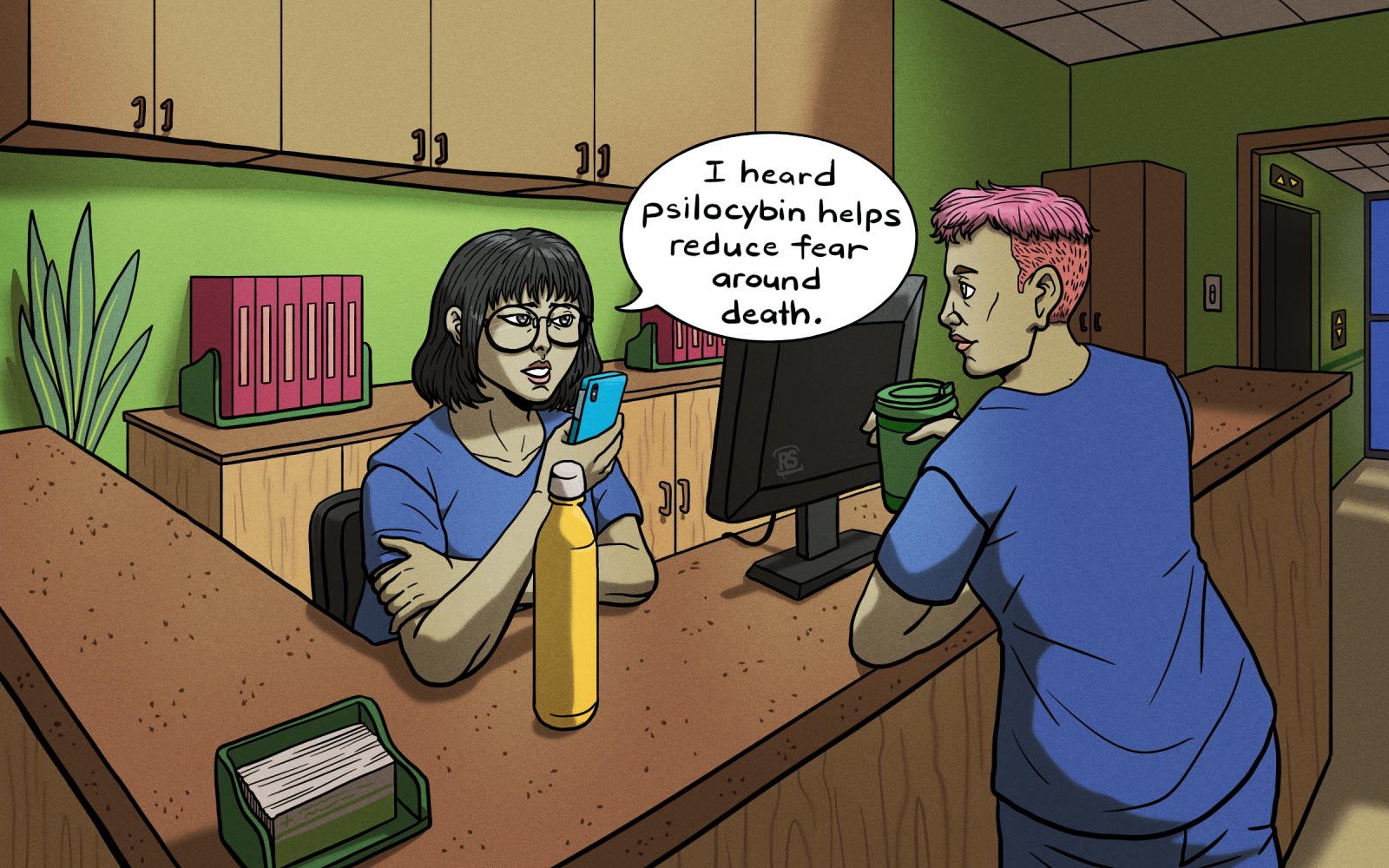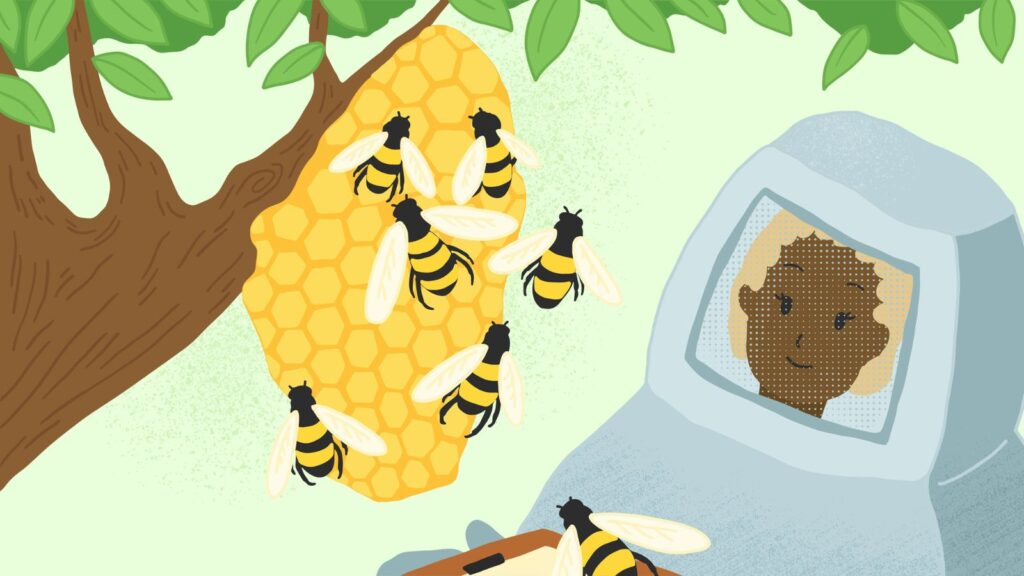Psilocybin, an active ingredient in magic mushrooms, has been a prodigious interest in the US with several clinical trials on its effectiveness to treat and reduce symptoms of depression, anxiety, and other mood disorders. The results from these clinical trials have been impeccable, and a possible breakthrough treatment for various ailments in the pharmaceutical industry. People all over the world are having mystical experiences and discovering some deep truths that perhaps, couldn’t have been grasped before. The inherent possibilities that psilocybin provides are beyond scientific understanding, and still, a discovery to be deliberately studied.
Does the magical ingredient, psilocybin, have the ability to reduce fear in cancer patients? What can we learn from these clinical trials?
Benefits of Psilocybin
With the number of clinical trials, personal breakthroughs, and mushroom retreats claiming psilocybin’s positive benefits to treat many ailments to humanities suffering — the benefits are becoming boundless. After a psilocybin trip, many have reported feeling personal freedoms like never before, positive shifts to their personalities, and more connected to others. Folks seeking treatment for substance abuse suddenly stopped harmful habitual patterns and discovered healthier alternatives for themselves through just one dose. During these spiritual experiences and breakthroughs, people become conscious of the unconscious helping them understand their triggers, habits, and toxicities.
Psilocybin can also help reduce fear, anxiety, and depression in many people suffering from traumatic events, or existential fear. Through a psychedelic experience, brain cells are stimulated, and new brain cells are regenerated: this is called neuroplasticity. Neuroplasticity gives people the ability to expand the mind into new possibilities, and help with mental cognition such as learning, relearning, and memorization.
“The science behind psilocybin treating depression is, depressed individuals typically have overactive medial prefrontal cortex regions of the brain, and psilocybin eases this and makes the brain function normally here.
Despite its harmlessness, amazing medical potential, and ability to produce phenomenal spiritual/mystical experiences, governments across the world have nearly all banned Psilocybin Mushrooms. Dangerous pharmaceutical pills can’t compete with the toxic cell purging benefits of cannabis and the positive mental state that shrooming promotes.” the Third Monk.
Psilocybin Effects on Cancer Patients
The psychoactive compound, psilocybin, paired with psychotherapy is the new propitious alternative for hundreds of thousands of cancer patients suffering from severe existential dread. Cancer is the world’s 2nd leading cause of death — about 10 million people die each year. After the psilocybin trials, cancer patients reported remarkably positive results — such as connection, self-acceptance, and a deeper meaning to life. When describing these coruscating encounters, some patients were brought to tears, claiming it to be one of the most personally meaningful and spiritually significant experiences of their lives. Breakthroughs that, perhaps, take years to attain happened within hours.
“It was very surprising and very moving to see somebody terminally ill with cancer feeling like their life is over, scared out of their mind, disconnected from family and friends and their spirituality to suddenly just be out of that terrible place and feeling so much better,” Stephen Ross, a psychiatrist researcher at NYU.
Clinical Trials
Some of the first clinical trials began in 1964 — during these trials 341 cancer patients reported that psychedelic-assisted therapy has the potential to improve cancer-related depression, anxiety, and existential dread. To this day, clinical trials continue to prove their ability and potential for treatment on various illnesses. A study done at NYU Langone Perlmutter Cancer Center had women aged 22-75 who were diagnosed with severe anxiety and depression due to their disease, consumed one dose of psilocybin. They worked closely with trained therapists, psychologists, and nurses who evaluated all side effects.
“Our study showed that psilocybin facilitated experiences that drove reductions in psychological distress,” says Bossis. “And if it’s true for cancer care, then it could apply to other stressful medical conditions.” Anthony Bossis, Ph.D., a clinical assistant professor of psychiatry at NYU Langone.
After the clinical trials, 80 percent of participants reported severe reductions in anxiety, depression, and fear of death. After one single dose, the spiritual breakthroughs and after-effects lasted years — participants reported feeling more connected to themselves thus those around them, higher energy levels, and more in love with life.
“Adding to evidence dating back as early as the 1950s, our findings strongly suggest that psilocybin therapy is a promising means of improving the emotional, psychological, and spiritual wellbeing of patients with life-threatening cancer”
“This approach has the potential to produce a paradigm shift in the psychological and existential care of patients with cancer, especially those with a terminal illness.” says the 2016 parent study’s lead investigator, Stephen Ross, MD, an associate professor in the Department of Psychiatry at NYU Langone Health.
What’s Next?
Clinical trials are still underway within the U.S for depression, emotional distress, and anxiety which can be beneficial for cancer patients. Time, money, and recruitment are postponing FDA’s approval on therapy. FDA approval for psilocybin-assisted therapy can open many doors within psychiatry as cancer affects about 40% of the globe, which can cause many people to develop serious mental distress.
“I feel like there’s needless suffering going on right now where people could be helped.”, Inverse
Unfortunately, there are folks out there that don’t have time. FDA regulations are imperative and necessary to assist in the reduction of suffering, as so many clinical trials have proven.
“It seems really odd that we’ve legalized the ability to end your life for pain and suffering, but we won’t let people access other therapies that are obviously far less invasive than ending one’s life for pain and suffering,” Verbora tells Inverse.
–https://dayspaassociation.com/5-health-benefits-of-the-magic-mushrooms/
–http://thirdmonk.net/knowledge/magic-mushrooms-growth-brain-cells.html















